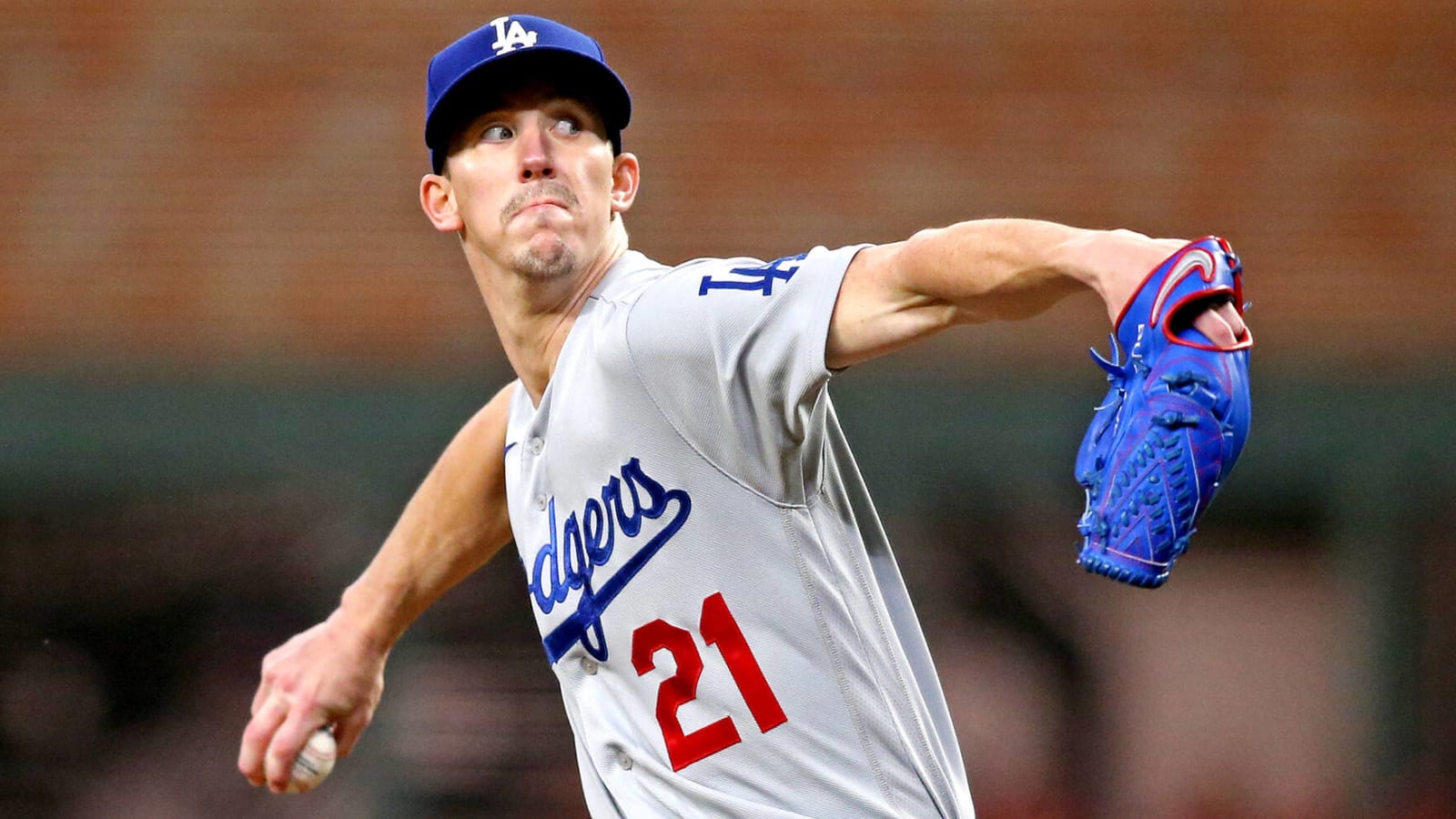
As bullpen usage has increased in recent years, starting pitching may not be as vital to a team’s success as it used to be. Still, a team’s ability to draft and develop a player into a good starting pitcher remains important. Let’s take a look at how recently each team had a good starting pitcher they drafted or signed as an international free agent.
First, a few ground rules. I’ll define “good starting pitcher” as at least 3 FanGraphs WAR in a season. I’ll exclude big-money international signings, like the Rangers and Yu Darvish. And I will include pitchers who began a season with the team that drafted and developed them and were traded that same year. I also included players who were drafted and developed by a team and eventually signed an extension to stay there, like Clayton Kershaw.
Thirteen different teams had a 3+ WAR starter they drafted or signed as an international free agent in 2021:
- Brewers: Corbin Burnes, Brandon Woodruff
- White Sox: Carlos Rodon. It should be noted that Rodon did technically become a free agent after the 2020 season because the White Sox non-tendered him, but he did not ultimately sign elsewhere. If you don’t want to count Rodon for the White Sox for that reason, you have to go back to Chris Sale’s 2016 campaign to find a homegrown 3 WAR starter.
- Reds: Tyler Mahle
- Rockies: Antonio Senzatela
- Astros: Lance McCullers Jr., Luis Garcia
- Angels: Shohei Ohtani. Although the Angels did sign Ohtani as an amateur free agent in December 2017, his contract was limited due to his age. The club still paid a $20M posting fee for Ohtani. Given that Ohtani had been a star in Japan and just about every MLB team wanted him, he’s not a testament to the Angels’ drafting and developing prowess. So if you’re seeking a more typical example of them having a homegrown 3 WAR starter, it’s Matt Shoemaker in 2016.
- Dodgers: Walker Buehler, Julio Urias, Clayton Kershaw
- Marlins: Trevor Rogers
- Twins: Jose Berrios (traded midseason)
- Mets: Jacob deGrom
- Yankees: Jordan Montgomery
- Phillies: Aaron Nola
- Giants: Logan Webb
Four more teams had their most recent 3 WAR homegrown starter in 2020 — if you are on board with my choice to prorate starting pitchers as if they played a full 162 games instead of just 60.
- Cleveland: Shane Bieber, Zach Plesac, Aaron Civale. If you reject the pro-rating premise, it’s Bieber in 2019.
- Padres: Dinelson Lamet. Otherwise you have to go all the way back to Mat Latos in 2011.
- Tigers: Spencer Turnbull. Otherwise it’s Justin Verlander back in 2016.
- Braves: Ian Anderson. Otherwise it’s Mike Soroka in 2019.
Three teams had their most recent homegrown 3 WAR starter in 2019:
- Nationals: Stephen Strasburg
- Cardinals: Jack Flaherty
- Blue Jays: Marcus Stroman
Three teams date back to 2018 for their most recent homegrown 3 WAR starter:
- Rays: Blake Snell
- Pirates: Jameson Taillon
- Mariners: James Paxton
A look at the seven remaining teams, who haven’t enjoyed a homegrown 3+ WAR starter in at least four years:
- Royals: Danny Duffy in 2017
- Orioles: Kevin Gausman in 2016
- Athletics: Sonny Gray in 2015
- Red Sox: Clay Buchholz in 2015
- Cubs: Jeff Samardzija in 2014 (traded midseason)
- Rangers: Derek Holland in 2013
- Diamondbacks: Wade Miley in 2012
Of course, it is quite possible to win a World Series with no homegrown 3 WAR starting pitchers. Let’s see how many were on each of the last 10 World Series winners:
- 2012 Giants: Matt Cain
- 2013 Red Sox: Jon Lester
- 2014 Giants: Madison Bumgarner
- 2015 Royals: None
- 2016 Cubs: None. I didn’t for this exercise, but you may want to give a team credit for acquiring a player before he reached the majors and developing him into a 3 WAR starter, like the Cubs did with Kyle Hendricks.
- 2017 Astros: None
- 2018 Red Sox: None
- 2019 Nationals: Stephen Strasburg
- 2020 Dodgers: Tony Gonsolin, Clayton Kershaw
- 2021 Braves: None
Some teams can make up for a lack of draft/international success on starting pitching with trades or free-agent signings. While the Diamondbacks may have the longest drought here, their 2017 rotation actually had four 3+ WAR starters, none of whom they drafted: Zack Greinke, Zack Godley, Robbie Ray and Patrick Corbin. The Cubs won a World Series in part because they signed Jon Lester and traded for Jake Arrieta and Kyle Hendricks.
More must-reads:
- The best-hitting MLB pitchers of all time
- The 14 likeliest trade candidates after the lockout
- The 'ERA leaders since 2001' quiz
Breaking News
Customize Your Newsletter
 +
+
Get the latest news and rumors, customized to your favorite sports and teams. Emailed daily. Always free!

